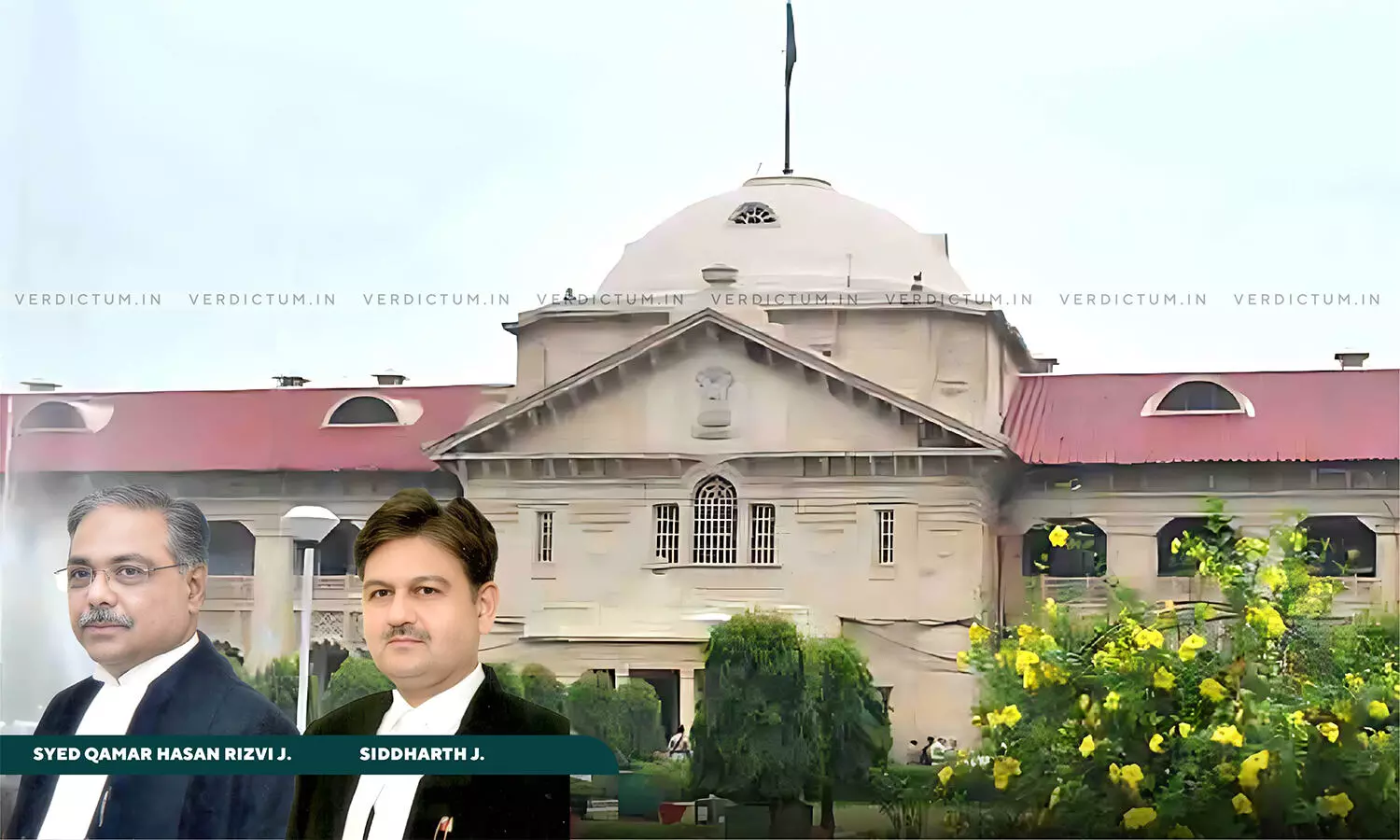
Denial Of Prompt Protection From Arrest Is A Big Source Of Corruption: Allahabad High Court
 |
|The Allahabad High Court granted protection to an accused from arrest until the trial court took cognizance of the chargesheet highlighting that the delay in providing prompt protection from arrest is a major contributor to corruption in Uttar Pradesh.
A Division Bench of Justice Siddharth and Justice Syed Hasan Rizvi said, “As soon as the notice of filing of anticipatory bail applications by an accused reaches the police station concerned the effort of his arrest gets intensified by the informant in the police both. The denial of prompt protection from arrest in a big source of corruption. The same himself from arrest the accused has no option but to please the police on day to day basis in the hope getting protection from arrest first in proceedings u/A 226 of Constitution of India then in proceedings under Section 438 Cr.P.C from the sessions Court and then from High Court.”
Senior Advocate VP Srivastava appeared for the Petitioners and Senior Advocate Vinay Sharan appeared for the Respondents.
The Court noted that, as the High Court does not entertain anticipatory bail applications directly, individuals seeking such protection must first approach the sessions court. The Court added, “During this period police gets sufficient opportunity to arrest an accused or exempt him from arrest in lieu of money or other considerations. Another practical problem is large number of filing of anticipatory bail applications in this court per day.”
The Court emphasized the practical challenges faced in the system, such as the high volume of anticipatory bail applications. On average, around 70-80 anticipatory bail applications are filed before the High Court daily, with approximately 2,500 applications currently pending. Many accused are arrested while their applications are pending, leading to some applications being dismissed as moot.
The Court observed that the lack of timely protection from arrest leads to widespread corruption. The Court added, “Most of those who escape arrest have to manage the police. As soon as the notice of filing of anticipatory bail applications by an accused reaches the police station concerned the effort of his arrest gets intensified by the informant in the police both. The denial of prompt protection from arrest in a big source of corruption. The same himself from arrest the accused has no option but to please the police on day to day basis in the hope getting protection from arrest first in proceedings u/A 226 of Constitution of India then in proceedings under Section 438 Cr.P.C from the sessions Court and then from High Court.”
The Court proposed that granting limited protection from arrest by the High Court until the investigation concludes could alleviate the burden on the sessions court and High Court, as well as reduce unnecessary harassment of litigants by the police. The Bench argued that compelling an accused to seek protection through multiple legal avenues amounts to undue harassment.
The Court also critiqued the increasing sophistication of FIRs (First Information Reports), which are now drafted with such precision by legal experts or head constables that courts often deny relief based on a superficial reading. The Court said, “Very long FIR containing the precise allegations making out the ingredients for constituting the alleged offences are mostly drafted by experts and the courts are required to be cautious of such FIRs which appear to be almost perfect with regard to allegations made therein. The human acts are imperfect and the genuine FIR does not contains the perfect recital supported by all the ingredients for constituting all the offences alleged. Therefore, protecting the liberty of the petitioner / accused during the pendency of investigation is in accordance of requirement of Article 21 of constitution of India.”
The Court stressed that protecting an accused's liberty during the investigation is essential and should align with the constitutional mandate under Article 21. It criticized the procedural delays and the lack of provisions for compensating accused individuals who are eventually found to have been wrongfully implicated.
Cause Title: Shobit Nehra & Anr. v. State of UP & Ors., [2024:AHC:111984-DB]
Appearance:
Petitioners: Senior Advocate VP Srivastava, along with Advocates Rahul Chaudhary and Salil Singh
Respondents: Senior Advocate Vinay Sharan and Advocate Atul Kumar Shahi
Click here to read/download Order